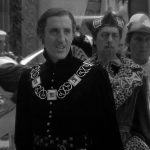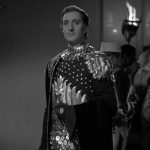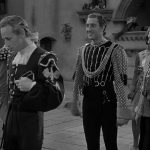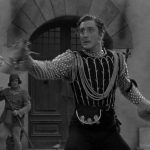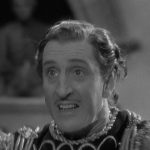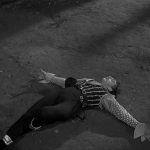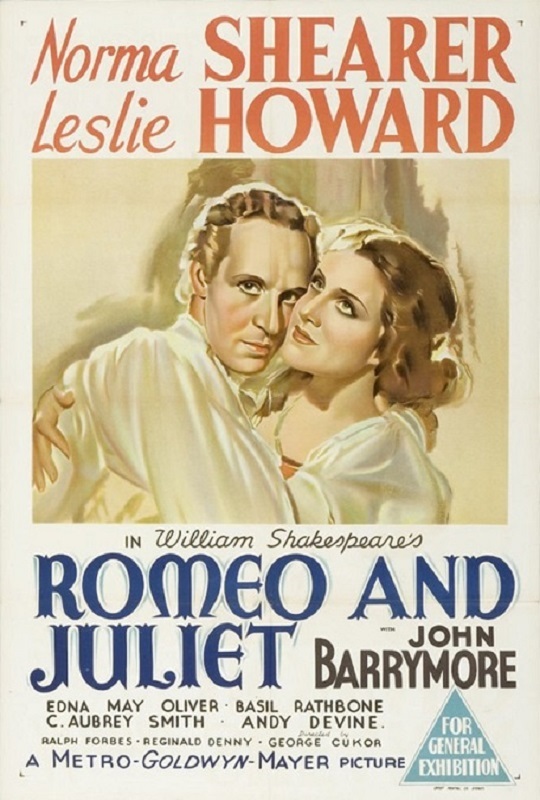
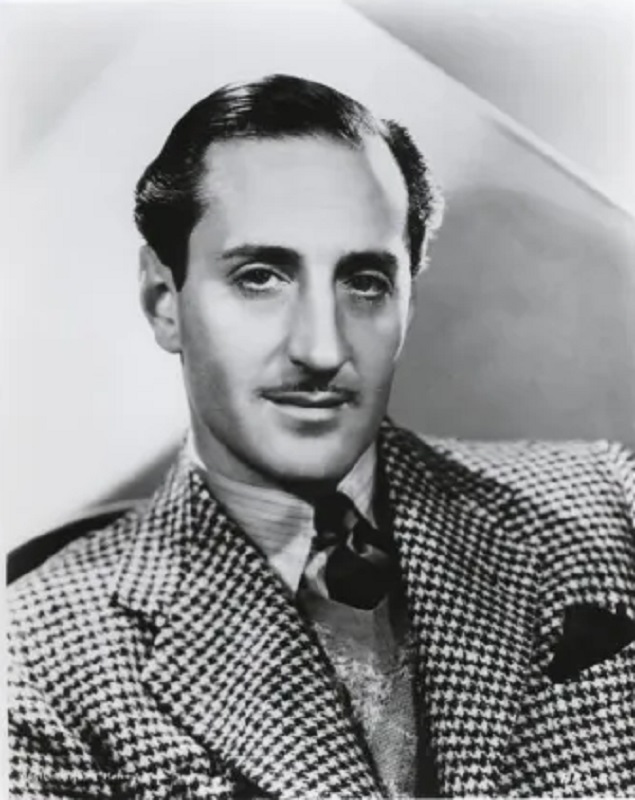

1936 – Basil Rathbone
Romeo and Juliet
Well, I’m not sure how I feel about this nomination. On the one hand, Rathbone did a fair job. He was an accomplished film swordfighter, and to be sure, it was a skill he was widely known for. He was really only in three scenes in this movie, two of which had him drawing his blade and sparring with an opponent. To put it more succinctly, the character was rather limited. So what was it about Rathbone’s performance that earned him the nomination? Well, I think it might have been the fancy sword-fighting, though there were certainly other reasons. Rathbone clearly knew what he was doing with a fencing blade in one hand and dirk in the other. He was quick on his feet and confident of his prowess. The speed with which he fenced was truly impressive. His sword-play wasn’t as extensive as in other films in his career, like The Adventures of Robin Hood, or Captain Blood, but it was still fun to watch.
But Rathbone was more than just an impressive fencer. Let’s take a look at the one scene in which he kept his weapon sheathed. It was at the Capulet’s party. Rathbone, playing Tybalt, was the first to see through Romeo’s disguise. He takes offense at the Montague’s presence, and is prepared to kill him on the spot. He is only stopped by Lord Capulet, himself, who has to talk the hot-headed Tybalt down from his wrath. Well, Rathbone put the anger and indignation into the scene. He seemed very… British in that scene. Understandable, I suppose, since he was English. I think it is safe to say that he was well-cast, especially considering the numerous failings in the film, as a whole. I mean, Andy Devine? Really?!? It’s hard to look bad when put next to horrible acting like that.
And then in his third scene, after the fencing begins, there are a couple of close-up shots of Rathbone’s face. In them, I could see his temper, yes, but also a healthy amount of fear, as he realizes that his opponents might be just as deadly as he believes himself to be. And there it was. That was it. There’s that extra bit of something that elevated the supporting role from just a hot-tempered sword fighter to a real character with a little self-reflective emotion. It was the clear fear of his own mortality, which Rathbone brought to the performance, that made him good.
But there was something odd that catches my attention in a bad way each time I have seen this movie. When Tybalt is killed by Romeo’s sword, he falls off a ledge in a most peculiar way. He lands on the ground and splays himself for the camera. His arms go out directly to his sides, like he is posing himself for a crucifixion, and his knee raises in a most unnatural way for a dead body that has just fallen. I don’t understand the pose, but it grabs my attention in the weirdest way, and I don’t think it was supposed to.
